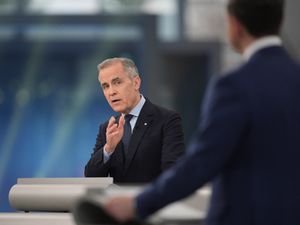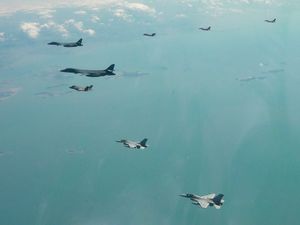US says it will exclude some electronics from ‘reciprocal’ tariffs
The announcement late on Friday is expected to benefit big tech companies such as Apple and Samsung.
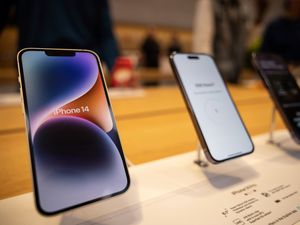
The Trump administration says electronics such as smartphones and laptops will be excluded from ‘reciprocal’ tariffs, a move that could help keep prices down for popular consumer electronics that are not usually made in the US.
The announcement late on Friday would also benefit big tech companies such as Apple and Samsung.
US Customs and Border Protection said items such as smartphones, laptops, hard drives, flat-panel monitors and some chips would qualify for the exemption. Machines used to make semiconductors are excluded too.
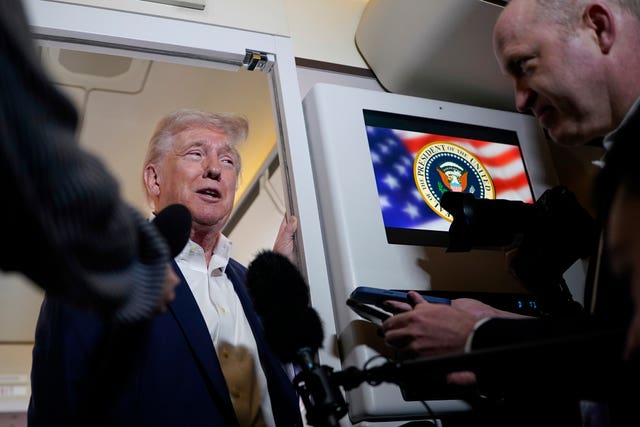
That means they will not be subject to the current 145% tariffs levied on China, or the 10% baseline tariffs elsewhere.
It is the latest tariff change by the Trump administration, which has made several U-turns in their massive plan to put tariffs in place on goods from most countries.
The goal is to encourage more domestic manufacturing. But the exemptions seem to acknowledge that the current electronics supply chain is virtually all in Asia and it will be challenging to shift that to the US. For example, about 90% of iPhones are produced and assembled in China, according to Wedbush Securities.
Mr Trump previously said he would consider exempting some companies from tariffs.
Mr Trump’s decision to exempt the iPhone and other popular electronics made in China mirrors the similar relief that he gave those products during the trade war of his first term in the White House.
But Mr Trump began his second term seemingly determined to impose the tariffs more broadly this time, triggering a meltdown in the market values of Apple and other technology powerhouses.
The turmoil battered the stocks of tech’s “Magnificent Seven” – Apple, Microsoft, Nvidia, Amazon, Tesla, Google parent Alphabet and Facebook parent Meta Platforms.
At one point earlier this week, the combined Magnificent Seven’s combined market value had plunged by 2.1 trillion dollars (£1.6 trillion), or 14%, from April 2 when Mr Trump unveiled sweeping tariffs on a wide range of countries.
Some of the losses eased this past Wednesday when Mr Trump paused the tariffs outside of China, paring the lost value in the Magnificent Seven to 644 billion dollars (£492 billion), or a 4% decline, from April 2.
Now, the stage is set for another tech rally on Monday when trading resumes in the US stock market, with Apple likely leading the way because the iPhones made in China remain the company’s biggest money maker.
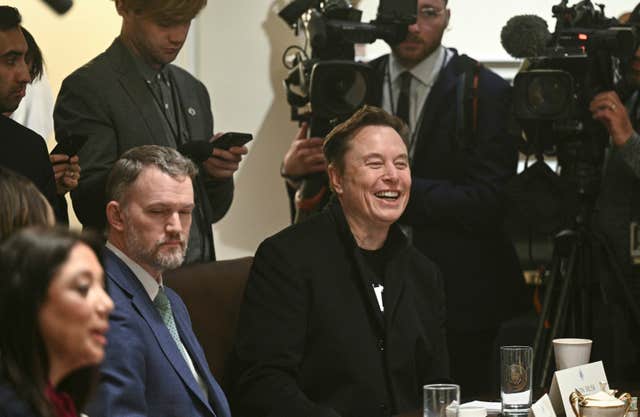
It is the kind of friendly treatment that industry was envisioning when Apple chief executive Tim Cook, Tesla boss Elon Musk, Google chief Sundar Pichai, Facebook founder Mark Zuckerberg and Amazon founder Jeff Bezos assembled behind the president during his January 20 inauguration.
The move takes off “a huge black cloud overhang for now over the tech sector and the pressure facing US big tech,” said Wedbush analyst Dan Ives in a research note.
Neither Apple nor Samsung responded to a request for comment early Saturday. Nvidia declined to comment.
In a statement issued on Saturday, White House Press Secretary Karoline Leavitt did not address the exemptions specifically but indicated the administration still plans to push for tech companies to move manufacturing to the US.
“President Trump has made it clear America cannot rely on China to manufacture critical technologies such as semiconductors, chips, smartphones and laptops,” Ms Leavitt said in an emailed statement.
She said the administration has secured US investments from tech companies including Apple, TSMC and Nvidia and these companies are “hustling to onshore their manufacturing in the United States as soon as possible”.



